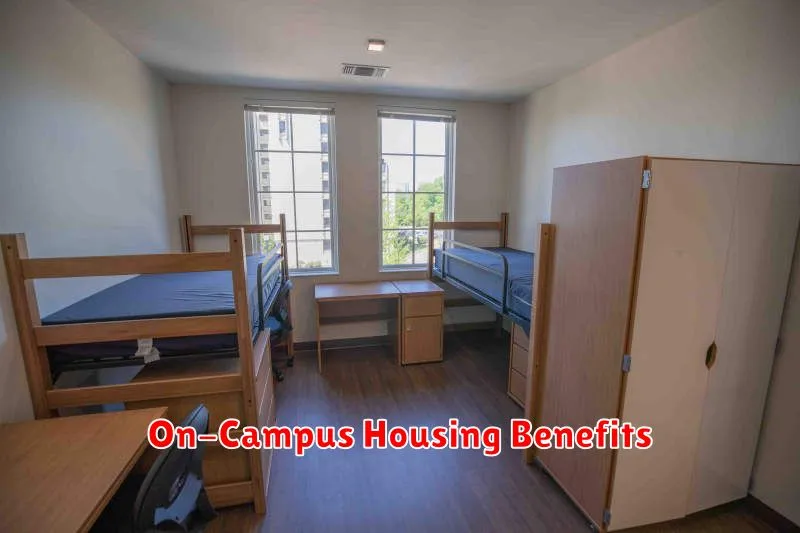Embarking on an international education journey opens up a world of opportunities, but finding suitable student housing options abroad can be a crucial step in ensuring a successful and enriching experience. This comprehensive guide will navigate you through the diverse landscape of student accommodation options available to students studying abroad, empowering you to make informed decisions that align with your budget, lifestyle, and academic pursuits. Whether you are considering a short-term exchange program or a full degree, understanding the nuances of international student housing is essential for a seamless transition into your new academic environment.
From bustling city centers to serene university campuses, the choices for student housing abroad are vast and varied. This guide will delve into the advantages and disadvantages of various accommodation types, including university dormitories, private apartments, homestays, and shared housing. We will explore key factors such as cost, location, amenities, cultural immersion opportunities, and the application process for each housing option. By carefully considering these elements, you can secure the ideal student accommodation abroad that will contribute to a positive and productive study abroad experience.
Types of Student Accommodation
Students studying abroad have a variety of housing options to choose from, each with its own advantages and disadvantages. Choosing the right accommodation is a crucial part of a successful study abroad experience. Consider your budget, desired level of independence, and social preferences when making your decision.
On-Campus Housing
Many universities offer on-campus dormitories or residence halls. These options provide a convenient location and often include amenities like meal plans and shared common areas. Living on-campus can be a great way to immerse yourself in university life and meet other students.
Off-Campus Housing
Private Apartments: Renting a private apartment offers greater independence and privacy. However, it also comes with more responsibilities, such as paying utility bills and managing your own household. Sharing an apartment with other students can help reduce costs.
Homestays: Living with a host family allows students to experience the local culture firsthand. Homestays typically include meals and offer a supportive environment. This can be a great option for students who are new to the country and want a more immersive cultural experience.
Student Hostels: Student hostels offer budget-friendly accommodation and opportunities to meet other students. However, they generally provide less privacy than other options.
On-Campus Housing Benefits

Residing on campus offers numerous advantages for international students. Convenience is a key factor, with classes, libraries, and other university facilities within easy reach. This proximity saves valuable time and reduces the stress of commuting.
Immersion in the university environment is another significant benefit. Living amongst peers fosters a sense of community and provides ample opportunities for social interaction and cultural exchange. This can ease the transition to a new country and help build lasting friendships.
On-campus housing often provides essential support services specifically designed for students. These may include resident advisors, tutoring programs, and access to dedicated support staff. This structured environment can be particularly helpful for students navigating a new academic system and culture.
Enhanced safety and security are often prioritized in on-campus housing. Controlled access, security personnel, and dedicated support staff contribute to a more secure living environment, offering peace of mind for both students and their families.
Finding Off-Campus Rentals
Finding off-campus housing requires more effort but can offer greater independence and flexibility. Begin your search several months before your arrival date. Popular online resources may vary depending on your chosen country, so research local options. Consider factors like proximity to campus, amenities, and budget.
Working with a local real estate agent can simplify the process, especially if you are unfamiliar with the area. Be prepared to provide references, proof of income, and possibly a security deposit.
Lease agreements are standard practice. Carefully review all terms and conditions before signing. Understand your responsibilities as a tenant, including payment schedules and property maintenance expectations.
Safety should be a top priority. Thoroughly inspect the property before signing any agreement, paying close attention to security features and the overall condition of the building. If possible, speak with current or previous tenants to gain insights into the property and neighborhood.
Student Housing Platforms to Use
Finding suitable accommodation is a crucial aspect of studying abroad. Several online platforms specialize in student housing, simplifying the search process. Utilizing these platforms can help you find a place that fits your budget, desired location, and living preferences.
University-Provided Housing Portals: Many universities offer their own housing portals for international students. These portals typically list on-campus options like dormitories or university-managed apartments. Check your university’s website for details.
Dedicated Student Housing Websites: Several websites cater specifically to student accommodation needs. These platforms often offer a wider selection of properties, including private apartments, shared houses, and homestays. They also often provide helpful resources and tools, such as virtual tours and neighborhood information.
Local Real Estate Portals: Exploring local real estate websites can provide insights into the housing market in your chosen city. These websites often list a broader range of properties but may require more diligence in filtering for student-suitable options.
Shared Living Tips for Roommates

Sharing living quarters requires open communication and mutual respect. Establish clear expectations early on regarding cleanliness, noise levels, guests, and shared expenses.
Create a chore chart or cleaning schedule to ensure shared responsibilities are distributed fairly. This can prevent misunderstandings and resentment from building up.
Respect each other’s privacy. Knock before entering, be mindful of personal belongings, and avoid borrowing items without permission.
Address conflicts directly and respectfully. Honest conversations are crucial to resolving issues and maintaining a positive living environment.
Compromise is key. Be willing to adjust your habits and preferences to accommodate your roommates. Shared living requires flexibility and understanding.
Understanding Rental Agreements
Before signing any rental agreement, it’s crucial to understand the terms and conditions. A rental agreement is a legally binding contract outlining the responsibilities of both the landlord and the tenant.
Key elements to look for include the lease duration, rent amount, payment schedule, and details about utilities (e.g., water, electricity, internet). Pay close attention to clauses regarding lease termination, security deposits, and potential penalties for breaking the agreement.
If the agreement is in a foreign language, obtain a translated version before signing. Don’t hesitate to seek clarification on anything you don’t understand. Having a clear understanding of the agreement upfront will help avoid potential disputes later.
Budgeting for Utilities and Essentials
Creating a realistic budget is crucial for a comfortable experience abroad. Beyond rent, factor in essential utilities such as electricity, water, gas (if applicable), and internet. These costs can vary significantly depending on your location and usage habits.
In addition to utilities, budget for essential household items. These might include toiletries, cleaning supplies, and basic kitchenware if not provided. Grocery costs are another significant expense to consider, and researching local markets can help you estimate weekly or monthly spending.
Consider building a buffer into your budget for unexpected expenses or fluctuations in utility prices. Keeping track of your spending can also help you stay within your budget and identify areas where you might be able to save.

